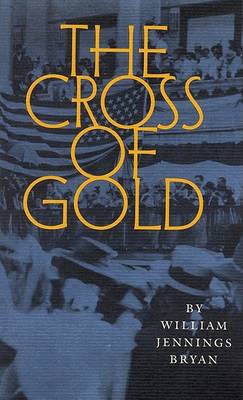William Jennings Bryan (1860-1925) moved to Lincoln, Nebraska, in 1887 as a young lawyer and rose rapidly in local Democratic Party affairs. In 1890 he was elected to the US Congress in a Democratic landslide and was reelected in 1892, although he failed in a bid for the US Senate in 1894. After the 1894 campaign, Bryan became editor of the "Omaha World-Herald", continued his activities as a proponent of 'free silver', and began a successful stint as a Chautauqua lecturer, honing his already considerable oratorical skills. His reputation as a free-silver advocate was such that his delivery of the 'Cross of Gold' speech at the 1896 Democratic Convention won him the nomination for president at the age of thirty-six. Bryan's proposal for the unlimited coinage of silver gained him support in the agrarian South and West and opposition in eastern states where banking and mercantile interests were paramount. During the 1896 campaign, Bryan traveled over eighteen thousand miles and made six hundred speeches in twenty-seven states, an unprecedented effort. Bryan lost to McKinley by ninety-five electoral votes, a result that conceals a relatively close popular vote.
Although he twice more ran for president, served as Woodrow Wilson's secretary of state, and ended his career at the Scopes 'Monkey Trial', he will always be best remembered for his galvanic address in 1896. Robert W Cherny is a professor of history at San Francisco State University. He is the author of "A Righteous Cause: The Life of William Jennings Bryan".
- ISBN10 0803261314
- ISBN13 9780803261310
- Publish Date 1 September 1996
- Publish Status Out of Print
- Out of Print 2 June 2021
- Publish Country US
- Imprint University of Nebraska Press
- Format Paperback (US Trade)
- Pages 28
- Language English
